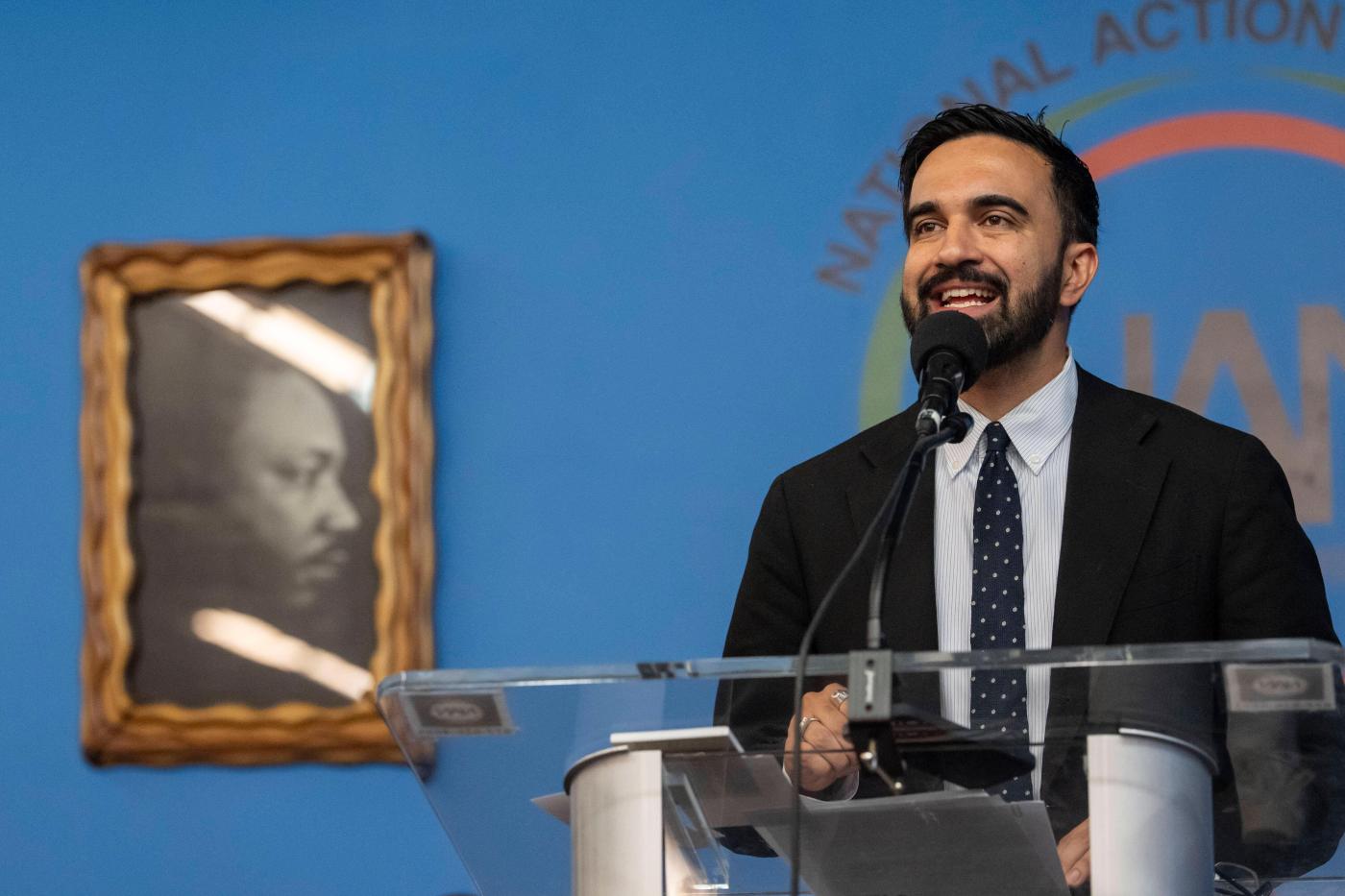
By Michael Hill | Associated Press
Zohran Mamdani spoke at a rally in Harlem on Saturday as he sought to build on momentum from New York City’s Democratic primary, telling the crowd that people struggling to pay for housing, groceries and bus fare are hungry for change.
Mamdani appeared at a National Action Network rally days after declaring victory over former Gov. Andrew Cuomo, the presumed favorite in the primary. Results will be finalized after the city’s ranked choice vote-counting resumes Tuesday.
“What our victory showed on election night was less a victory between one man and another, but a victory for a city that New Yorkers can afford,” Mamdani said at a rally attended by Black clergy and filmmaker Spike Lee
The Rev. Al Sharpton, the influential leader of the network, praised Mamdani for coming to the rally, despite reports that he lost some of the city’s most solidly Black neighborhoods in the primary.
“He could have went the other way and said, ‘It’s me against them.’ But he came this morning and he proclaimed something. And I gave him a lot of credit for that,” Sharpton said.
The winner of the Democratic primary advances to November’s election.
Mayor Eric Adams is running for reelection as an independent candidate. Curtis Sliwa, the founder of the crime-fighting Guardian Angels, is running as a Republican. Cuomo, who has conceded defeat in the primary, also could run as an independent candidate.
Related Articles
Letters: Donald Trump’s war on trans education puts lives at risk
Letters: By electing Tordillos, S.J. District 3 rejects corporate influence
Despite $12 billion state budget shortfall, Newsom and California Dems defer major spending cuts
Trump administration to investigate University of California’s hiring practices
San Mateo supervisors scrutinize sheriff’s department spending
In Harlem, the 33-year-old state lawmaker stuck to a cost-of-living theme that skyrocketed him to political stardom, weaving in quotes from Martin Luther King Jr., the Bible and the city’s first Black mayor, David Dinkins.
He said people question whether the city will become “a museum” of a place where working people could once thrive.
“What we have seen in the last two weeks is a hunger from New Yorkers to move beyond the days of museums and relics and make this city a living, breathing testament to what is possible.”